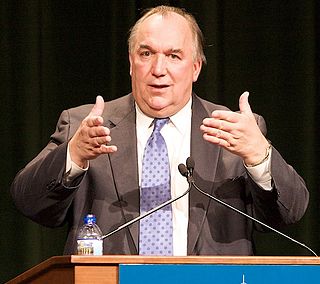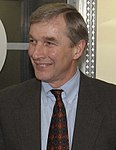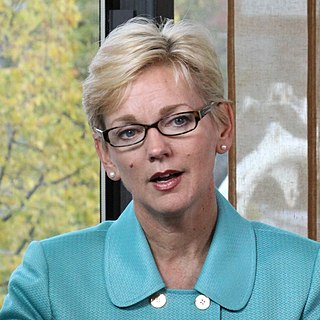
The Governor of Michigan is the chief executive of the U.S. state of Michigan. The current governor is Gretchen Whitmer, a member of the Democratic Party, who was inaugurated on January 1, 2019, as the state's 49th governor. She is eligible for a second term under Michigan's term limits, which limit a governor to only two, four-year terms.
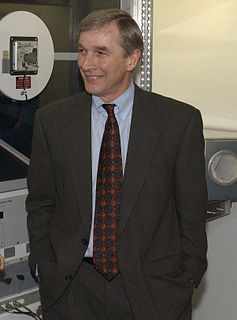
Richard Posthumus is an American businessman, and politician. He was the 61st Lieutenant Governor of Michigan and majority leader of the Michigan Senate. In 2002, he was the unsuccessful Republican nominee for Governor of Michigan.

The Michigan gubernatorial election of 2006 was one of the 36 U.S. gubernatorial elections held November 7, 2006. Incumbent Democratic Governor of Michigan Jennifer Granholm was re-elected over Republican businessman Dick DeVos and three minor party candidates. Granholm was re-elected with 56% of the vote.

United States gubernatorial elections were held on November 2, 2010 in 37 states and two territories. As in most midterm elections, the party controlling the White House lost ground. Democrats did take five governorships from the Republicans, and Republicans took 11 governorships from the Democrats. An independent won one governorship previously held by a Republican. A Republican won one governorship previously held by an independent. Republicans held a majority of governorships for the first time since before the 2006 elections. One state, Louisiana, had no election for governor, but did feature a special election for lieutenant governor.

Thomas George is a Republican politician from the U.S. state of Michigan. As a member of the Michigan State Senate, he represented Kalamazoo County as well as an eastern portion of Van Buren County. George is a physician and former medical director for Hospice of Greater Kalamazoo.

The 2008 congressional elections in Michigan were held on November 4, 2008 to determine who would represent the state of Michigan in the United States House of Representatives. Michigan had fifteen seats in the House, apportioned according to the 2000 United States Census. Representatives are elected for two-year terms; those elected will serve in the 111th Congress from January 4, 2009 until January 3, 2011. The election coincided with the 2008 U.S. presidential election.

The Michigan gubernatorial election of 2010 was held on November 2, 2010. Incumbent Democratic Governor Jennifer Granholm was prohibited by the state's Constitution from seeking a third term. This resulted in a large pool of candidates which was whittled down, when the May 11 filing deadline passed, to two Democrats and five Republicans. Both the Cook Political Report and the non-partisan Rothenberg Political Report rated the election as leaning Republican.

The 2010 Alaska gubernatorial election took place on November 2, 2010. Former Governor Sarah Palin did not run, having resigned in July 2009. Incumbent Governor Sean Parnell, who as lieutenant governor succeeded Palin following her resignation, announced that he would seek a full term.

The 1990 Michigan gubernatorial election was held on November 6, 1990, to elect the Governor and Lieutenant Governor of the state of Michigan. John Engler, a member of the Republican Party and State Senate majority leader, was elected over Democratic Party nominee James Blanchard, who was seeking his third term. In what turned out to be one of the closest elections in recent Michigan history, Engler won by a 17,000 vote margin. The voter turnout was 38.6%.

The 1994 Michigan gubernatorial election was held on November 8, 1994, to elect the Governor and Lieutenant Governor of the state of Michigan. Incumbent Governor John Engler, a member of the Republican Party, was re-elected over Democratic Party nominee and Congressman Howard Wolpe. The voter turnout was 45.5%.

The 1998 Michigan gubernatorial election was held on November 3, 1998, to elect the Governor and Lieutenant Governor of the state of Michigan. Incumbent Governor John Engler, a member of the Republican Party, was re-elected over Democratic Party nominee Geoffrey Fieger, a lawyer who had represented the assisted suicide advocate Jack Kevorkian.
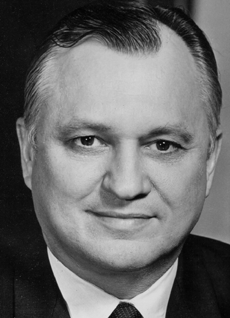
The 1990 Alaska gubernatorial election took place on November 6, 1990, for the open seat of Governor of Alaska. In 1989, incumbent Governor Steve Cowper, a Democrat, had announced that he would not seek re-election for a second term.
Jill Alper is an American political consultant. She founded Alper Strategies & Media, a media firm, in 2016. Formerly, she served as the head of Dewey Square Group's campaign and integrated media practice.

Elections were held in Michigan on Tuesday, November 2, 2010. Primary elections were held on August 3, 2010.

The 2012 United States House of Representatives elections in Michigan was held on Tuesday, November 6, 2012, to elect the 14 U.S. Representatives from the state of Michigan, a decrease of one following the 2010 United States Census. The elections coincided with the elections of other federal and state offices, including a quadrennial presidential election and an election to the U.S. Senate. Primary elections were held on August 7, 2012. The filing deadling for candidates to file to run in the primary was May 15. Except for two seats, all the incumbents sought re-election. The open seats were the 5th and 11th Congressional Districts. Due to the loss of one seat from the 2010 Census, two congressmen ran against each other. Despite Democrats winning more than 240,000 more votes for U.S. House districts statewide, Republicans won nine of 14 seats and Michiganders tied a state record by electing the lowest rate of U.S. Representatives by a major party whilst simultaneously casting its electoral votes for that party's presidential nominee.

The Michigan gubernatorial election of 2014 took place on November 4, 2014, to elect the Governor of Michigan, concurrently with the election of Michigan's Class II U.S. Senate seat, as well as other elections to the United States Senate in other states and elections to the United States House of Representatives and various state and local elections.

United States gubernatorial elections were held on November 6, 2018 in 36 states and three territories. These elections formed part of the 2018 United States elections. Other coinciding elections were the 2018 United States Senate elections and the 2018 United States House of Representatives elections. The last regular gubernatorial elections for all but three of the states took place in 2014. Governors in New Hampshire and Vermont serve two-year terms, meaning that their most recent gubernatorial elections took place in 2016. Meanwhile, Oregon held a special election in 2016 to fill an unexpired term.

The 2016 United States House of Representatives elections in Michigan were held on November 8, 2016, to elect the 14 U.S. Representatives from the state of Michigan, one from each of the state's 14 congressional districts. The elections coincided with the 2016 U.S. presidential election, as well as other elections to the House of Representatives, elections to the United States Senate in 33 other states and various state and local elections. The deadline for candidates to file for the August 2 primary election was April 19.



